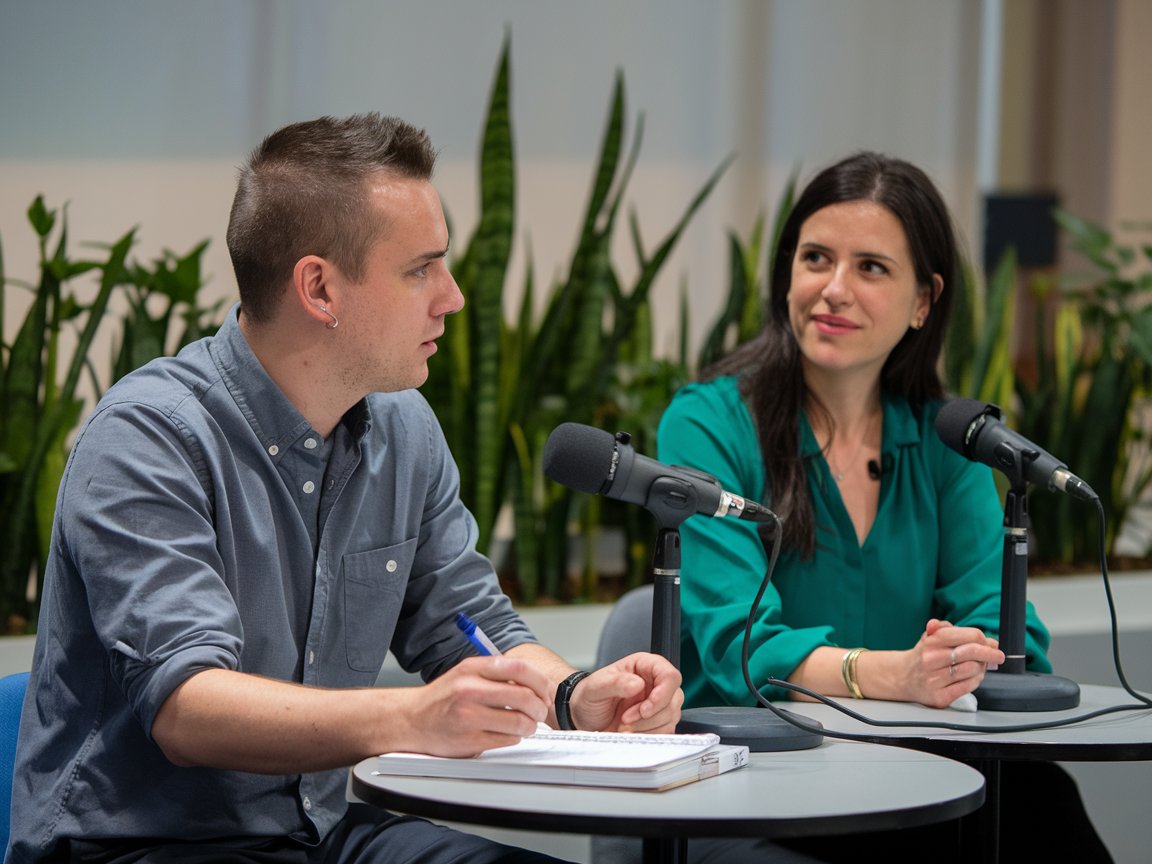
Exploring Ethical Voice Cloning with AIdeaFlow: What You Need to Know
As we venture further into the digital age, voice cloning technology has become a hot topic, raising various ethical considerations that need to be addressed. With advancements in artificial intelligence, we now have the capability to replicate human voices with remarkable accuracy. While this technology offers exciting possibilities for creativity and productivity, it also presents potential risks related to identity, consent, and misuse. In this blog post, we will explore the ethical implications of voice cloning, specifically through the lens of AIdeaFlow, a platform that harnesses AI to create podcasts and audio content, facilitating an ethical approach to voice replication.
What is Voice Cloning?
Voice cloning refers to the process of creating a synthetic voice that mimics a specific person's speech patterns, tone, and inflection.
Key Features of Voice Cloning:
- Realism: Advanced algorithms can produce voices that sound indistinguishable from real human speech.
- Customizability: Users can adjust tone, pitch, and speed to create unique audio outputs.
- Wide Applications: From audiobooks to gaming, voice cloning has diverse use cases.
The Rise of AI and Voice Cloning Technology
With rapid advancements in AI technologies, voice cloning has surged in popularity over the past few years.
Contributing Factors:
- Deep Learning: Neural networks have improved the accuracy and quality of voice synthesis.
- Data Availability: Access to large datasets of recorded speech has enhanced training for voice models.
- Increased Demand: Industries seek efficient ways to produce audio content, driving the need for voice cloning.
Ethical Considerations in Voice Cloning
The emergence of voice cloning raises significant ethical concerns that need to be carefully navigated.
Major Ethical Issues:
- Consent: Is it ethical to clone a person's voice without their explicit permission?
- Identity Theft: The potential for misuse in fraud or impersonation is a significant concern.
- Misinformation: Cloned voices can be used to spread false information, leading to potential societal harm.
The Role of AIdeaFlow in Ethical Voice Cloning
AIdeaFlow is a pioneering platform designed to facilitate the ethical use of voice cloning technology in audio content creation.
Key Features of AIdeaFlow:
- User Consent Protocols: The platform emphasizes obtaining user consent before utilizing voice cloning.
- Transparency: AIdeaFlow provides clear guidelines about data usage and ethical practices.
- Content Control: Users maintain control over how their voices are used, ensuring ethical compliance.
How AIdeaFlow Works
Understanding the mechanics of AIdeaFlow can help users navigate its capabilities effectively.
Core Components:
- Voice Synthesis Engine: Uses advanced AI algorithms to generate realistic voice clones.
- User-Friendly Interface: Simplifies the voice cloning process, making it accessible to non-technical users.
- Customization Options: Users can personalize their voice outputs to match their unique style.
Potential Applications of AIdeaFlow
AIdeaFlow opens up numerous possibilities for creators and businesses alike.
Use Cases:
- Podcasting: Create engaging audio content with cloned voices for storytelling or interviews.
- Audiobooks: Produce narrated content in various styles, enhancing user experience.
- Marketing: Generate tailored audio advertisements using voice cloning technology.
Legal Framework Surrounding Voice Cloning
As voice cloning technology evolves, so does the need for a robust legal framework.
Current Legal Landscape:
- Copyright Issues: The ownership of cloned voices can be complex, requiring clear legal guidelines.
- Privacy Laws: Existing privacy regulations may need to be updated to account for AI-generated content.
- Potential Regulations: Governments are beginning to address the ethical use of AI, paving the way for future legislation.
Best Practices for Ethical Voice Cloning
For anyone looking to embrace voice cloning technology, following best practices is crucial.
Recommendations:
- Seek Explicit Consent: Always obtain permission from individuals before cloning their voices.
- Be Transparent: Inform users about how their voice data will be used and stored.
- Monitor Usage: Regularly audit the applications of cloned voices to prevent misuse.
The Future of Voice Cloning and AIdeaFlow
Looking ahead, the future of voice cloning holds exciting potential while also demanding responsibility.
Emerging Trends:
- Improved Technologies: Expect advancements that further enhance the realism and applications of voice cloning.
- Increased Regulation: Stricter guidelines may emerge to protect individuals from misuse.
- Wider Acceptance: As ethical frameworks develop, the acceptance of voice cloning in various industries is likely to grow.
Conclusion
Voice cloning technology, particularly through platforms like AIdeaFlow, offers remarkable opportunities for content creation while also presenting ethical challenges that must be addressed. By prioritizing consent, transparency, and responsible usage, we can harness the power of voice cloning ethically and creatively. As we continue to explore this fascinating frontier, it is essential to engage in discussions about the implications and responsibilities that come with such groundbreaking technology. By doing so, we can ensure that voice cloning serves as a tool for innovation rather than a means for exploitation.